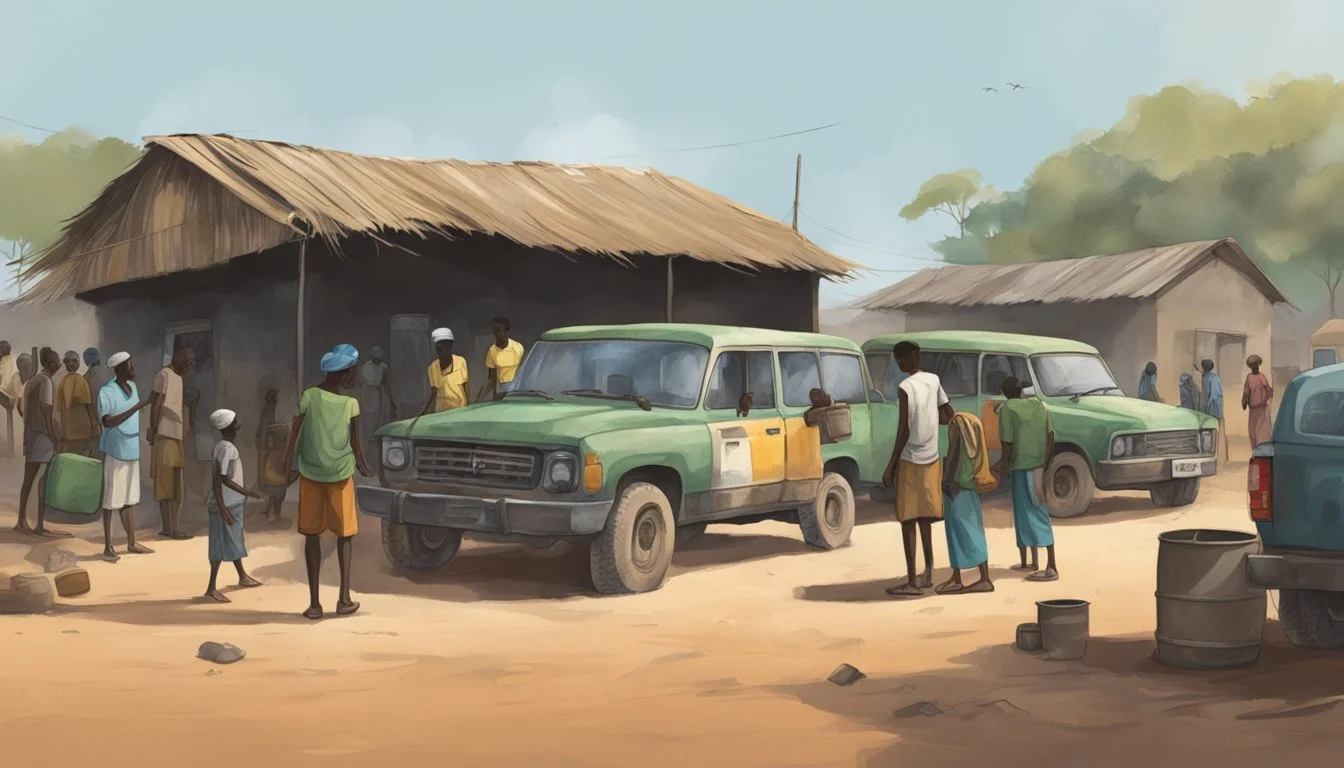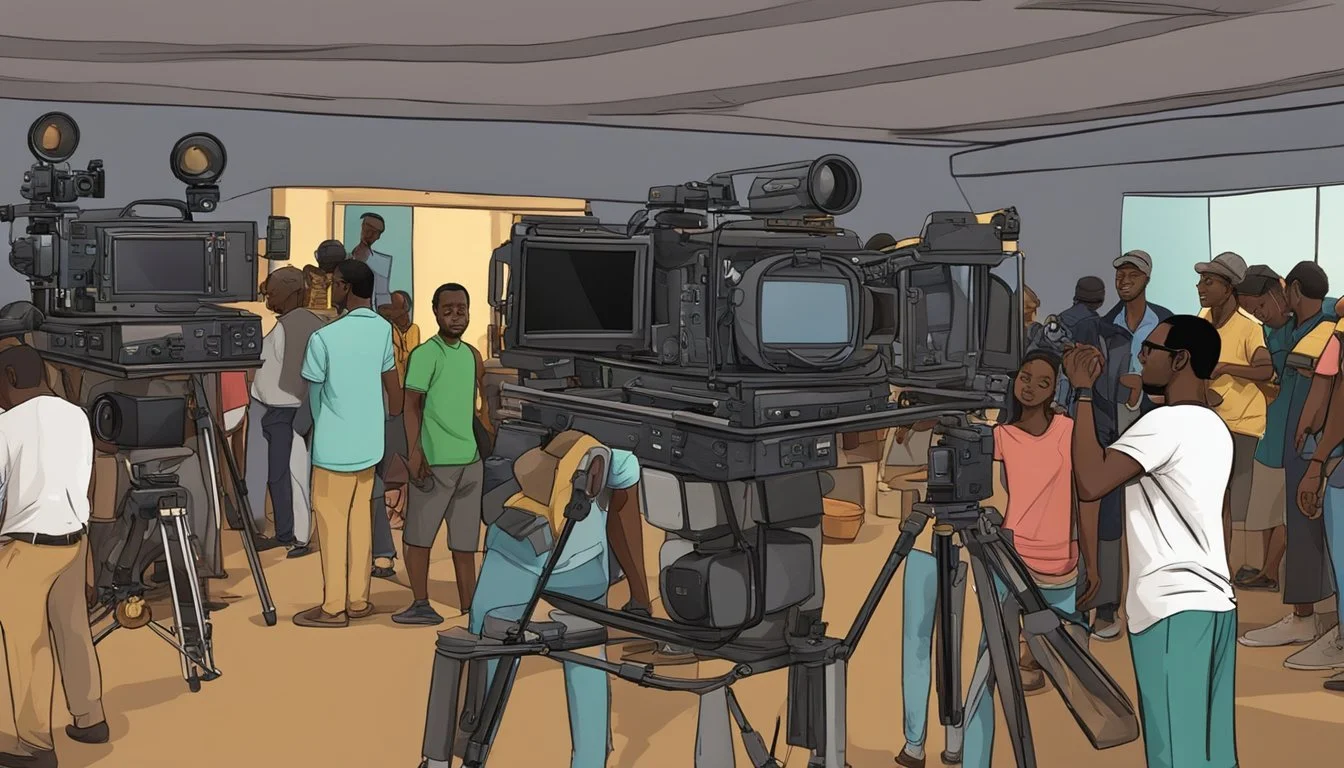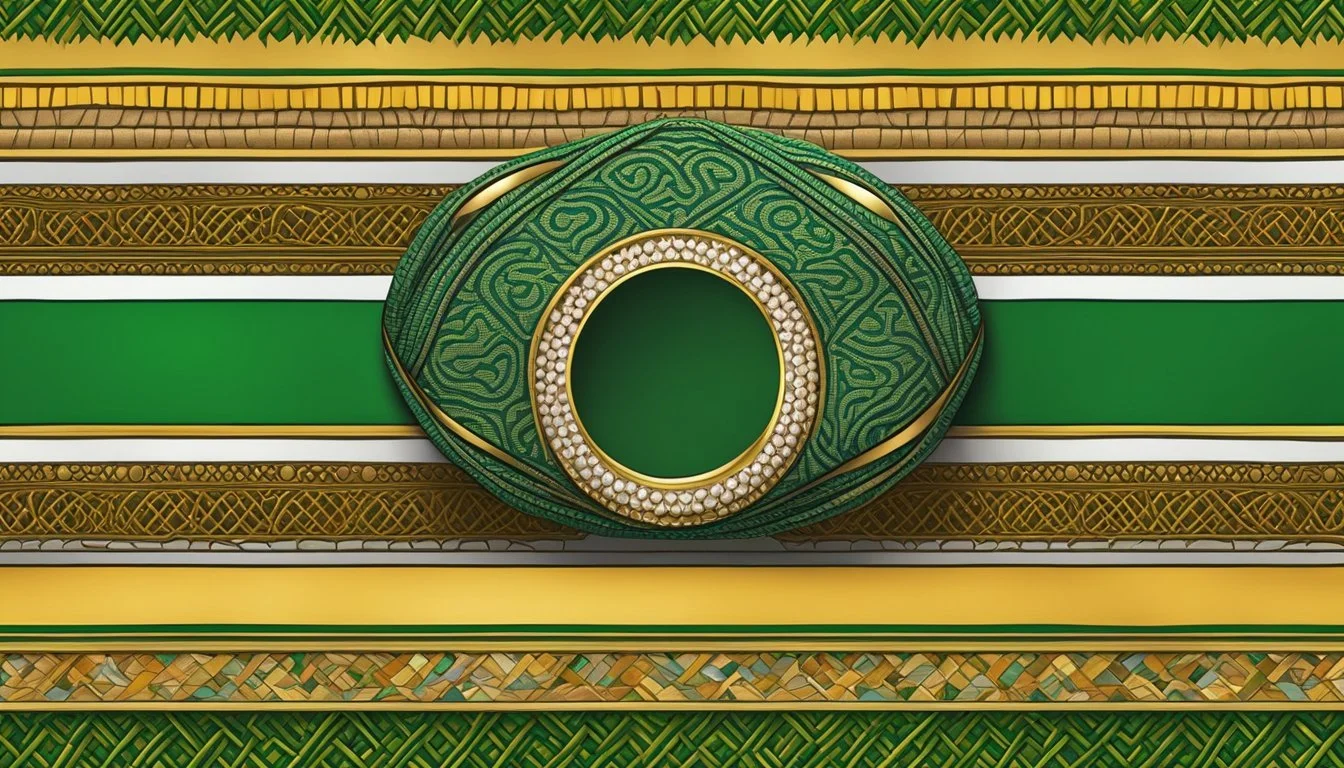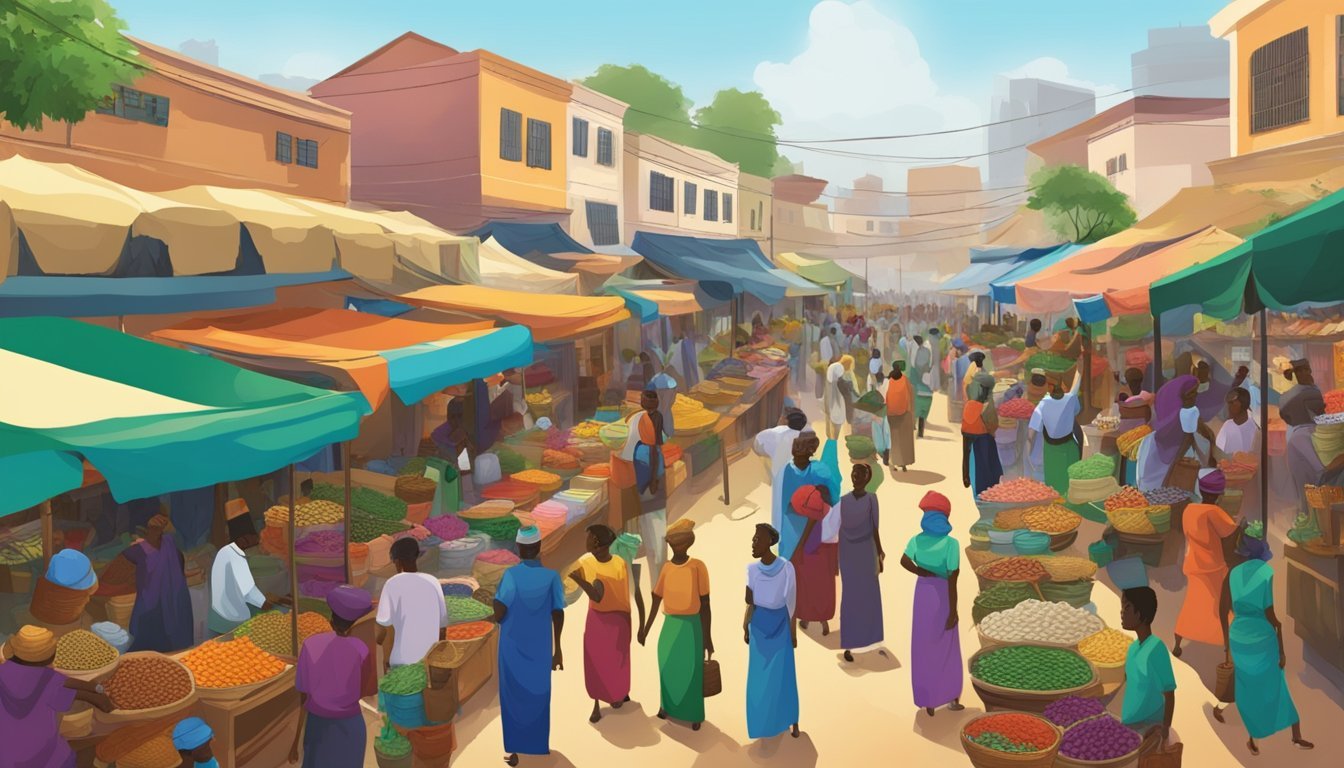10 Fascinating Documentaries About Nigeria
Exploring the Rich Culture and History of Africa's Most Populous Nation
Nigeria, Africa's most populous country, has a rich and complex history that has captivated filmmakers and audiences alike. From its vibrant culture to its political struggles and societal challenges, Nigeria offers a wealth of compelling stories waiting to be told through the documentary lens.
These 10 fascinating documentaries provide valuable insights into Nigeria's past and present, offering viewers a deeper understanding of this diverse nation. They cover a range of topics, including ethnic dynamics, organized crime, colonial history, and the stark contrasts within Nigerian society. Through expert interviews, archival footage, and personal narratives, these films shed light on both the triumphs and tribulations that have shaped Nigeria's trajectory.
1) "No Where to Run" - Dan McCain
"No Where to Run" is a compelling documentary directed by Dan McCain that explores environmental challenges in Nigeria. The film focuses on the impacts of climate change and oil pollution on local communities.
McCain's camera captures stark images of devastated landscapes and struggling wildlife. Through interviews with villagers and activists, the documentary reveals how these issues affect daily life in the Niger Delta region.
The film examines the complex relationship between Nigeria's oil industry and environmental degradation. It highlights how oil spills and gas flaring have contaminated water sources and farmland.
"No Where to Run" also addresses the broader implications of climate change for Nigeria. Rising sea levels threaten coastal areas, while desertification impacts northern regions.
McCain's work sheds light on grassroots efforts to combat these problems. The documentary showcases local initiatives aimed at conservation and sustainable development.
2) "Fuelling Poverty" - Ishaya Bako
"Fuelling Poverty" is a 2012 Nigerian documentary directed by Ishaya Bako. The film explores the activities of the Occupy Nigeria movement during its peak in early 2012.
The 28-minute documentary features appearances from prominent figures such as Nobel Laureate Wole Soyinka, lawyer Femi Falana, politician Nasir Ahmad el-Rufai, musician Seun Kuti, and actor Desmond Elliot.
Bako's film examines the complex issue of fuel subsidies in Nigeria and their impact on poverty. It provides insight into the country's oil wealth management and the resulting socioeconomic challenges.
"Fuelling Poverty" received critical acclaim, winning the Best Documentary award at the 9th Africa Movie Academy Awards. The film's success helped establish Bako as a notable voice in Nigerian cinema.
Ishaya Bako, based in Abuja, Nigeria, has continued to make an impact in the film industry. His work includes writing for the movie "Lionheart" (2018) and directing "The Royal Hibiscus Hotel," which was screened at the 2017 Toronto International Film Festival.
3) "The Nigeria Code" - Louis Neethling
"The Nigeria Code" is a thought-provoking documentary directed by Louis Neethling. The film explores the complex social and political landscape of Nigeria, examining the unwritten rules that govern daily life in the country.
Neethling's documentary delves into various aspects of Nigerian society, from business practices to interpersonal relationships. It sheds light on the informal systems that have developed alongside official institutions.
The film features interviews with a diverse range of Nigerians, including entrepreneurs, politicians, and everyday citizens. These firsthand accounts provide valuable insights into how people navigate the country's unique cultural and economic environment.
"The Nigeria Code" also examines the historical context that has shaped these unwritten rules. It traces the influence of colonial legacies and traditional customs on modern Nigerian society.
Neethling's documentary has garnered attention for its nuanced portrayal of Nigeria's challenges and opportunities. It offers viewers a deeper understanding of the country's social dynamics beyond mainstream media narratives.
4) "Clean Hands" - Sahara Reporters
"Clean Hands" is a compelling documentary produced by Sahara Reporters that explores the critical importance of hand hygiene in Nigeria's healthcare system. The film sheds light on the challenges faced by medical professionals in maintaining proper sanitation practices.
Through interviews with healthcare workers, the documentary reveals the stark realities of limited resources and inadequate infrastructure in many Nigerian hospitals and clinics. It showcases the dedication of nurses and doctors who strive to uphold cleanliness standards despite these obstacles.
The film also highlights successful initiatives that have improved hand hygiene practices in certain healthcare facilities. It demonstrates how simple yet effective measures, such as installing handwashing stations and providing education on proper techniques, can significantly reduce the spread of infections.
"Clean Hands" emphasizes the life-saving potential of proper hand hygiene in medical settings. It presents statistics on infection rates and illustrates how consistent handwashing can prevent numerous health complications.
The documentary serves as a call to action, urging policymakers and healthcare administrators to prioritize hand hygiene in Nigeria's medical facilities. It underscores the need for increased funding, better training programs, and improved access to clean water and sanitation resources.
5) "Nollywood Babylon" - Ben Addelman
"Nollywood Babylon" is a feature documentary directed by Ben Addelman and Samir Mallal. The film explores Nigeria's booming film industry, known as Nollywood, which has become the third-largest in the world.
The documentary offers an in-depth look at the phenomenal success of Nollywood. It showcases the vibrant energy of Lagos, Nigeria's largest city and the heart of the film industry.
Addelman and Mallal's work captures the unique aspects of Nollywood productions. These films often operate on tight budgets and schedules, blending traditional voodoo stories with contemporary urban themes.
The soundtrack features 1970s African underground music, adding to the film's dynamic atmosphere. This musical backdrop complements the electric vision of modern African cinema presented in the documentary.
"Nollywood Babylon" provides viewers with insights into the economic and cultural impact of Nigeria's film industry. It demonstrates how Nollywood has taken the African continent by storm and is now expanding beyond its borders.
The documentary includes interviews with key figures in the industry. It offers a revealing look at the powerhouse that Nigerian cinema has become on the global stage.
6) "The Wedding Ring" - Rahmatou Keïta
"The Wedding Ring" is a groundbreaking film directed by Rahmatou Keïta. Released in 2016, it marks Niger's first entry to the Academy Awards in 2018.
The film follows the story of Tiyaa, an aristocratic young woman who returns to her home village after studying abroad. Keïta cast her own daughter, Magaajyia, in the leading role.
Set in the Sultanate of Zinder, the movie explores themes of love, tradition, and cultural identity. It showcases the beauty of Niger's landscapes and customs.
Keïta's work received critical acclaim, earning the Special Jury Award at the Kazan International Muslim Film Festival. It also won Best Picture at FESPACO, a significant achievement for Niger's cinema.
The director's commitment to African storytelling is evident in the film. Keïta, a founding member of the Panafrican Association for Culture, uses her art to contribute to cultural dialogue.
"The Wedding Ring" blends elements of narrative fiction with documentary-style observations. It offers viewers a unique glimpse into Niger's rich cultural heritage and contemporary social dynamics.
7) "Amaka's Kin" - Tope Oshin
"Amaka's Kin - The Women of Nollywood" is a documentary directed by Tope Oshin, a prominent Nigerian filmmaker. The film pays tribute to Amaka Igwe, a renowned Nigerian director and TV mogul who passed away in 2014.
Oshin's documentary chronicles the experiences of female directors in the Nigerian film industry. It features interviews with successful women in Nollywood, including Stephanie Linus and Omoni Oboli.
The film explores the challenges and triumphs of women working behind the camera in Nigeria's vibrant film scene. It sheds light on their contributions to the industry and the legacy of Amaka Igwe.
Tope Oshin, the director, has garnered recognition as one of Africa's leading women in film. Her work on "Amaka's Kin" showcases her commitment to highlighting female voices in Nigerian cinema.
The documentary premiered at the 'Beyond Nollywood Film Festival,' introducing audiences to the often-overlooked stories of women shaping Nigeria's film landscape. It serves as both a celebration of female talent and a call for greater representation in the industry.
8) "Soco Socrates" - Chikezie Uwazie
"Soco Socrates" is a compelling documentary directed by Nigerian filmmaker Chikezie Uwazie. The film explores the life and philosophy of a local sage in a rural Nigerian village.
The documentary follows the daily routines and teachings of Soco, an elderly man revered for his wisdom. Uwazie's camera captures intimate moments as Soco dispenses advice to villagers seeking guidance.
Through interviews with community members, the film reveals Soco's impact on the village. His insights on traditional values, modern challenges, and the importance of education resonate deeply with locals.
Uwazie's cinematic style blends observational footage with poetic visuals of village life. The film's pacing allows viewers to absorb Soco's teachings and witness their practical application in the community.
"Soco Socrates" offers a unique glimpse into rural Nigerian philosophy and the role of elders in preserving cultural wisdom. The documentary highlights the intersection of tradition and modernity in contemporary African society.
9) "Sweet Sweet Codeine" - BBC Africa Eye
"Sweet Sweet Codeine" is a powerful documentary from BBC Africa Eye that exposes Nigeria's cough syrup addiction crisis. Released in 2018, the film was presented by Nigerian investigative journalist Ruona Meyer.
The documentary reveals widespread abuse of codeine-based cough medicine among young people in Nigeria. It estimates that millions of Nigerians are addicted to this prescription drug that has become a dangerous street narcotic.
BBC Africa Eye's undercover investigation delved into the people behind Nigeria's codeine trade. The film had an immediate and significant impact on Nigerian policy.
Within 24 hours of the documentary's screening, the Nigerian government banned the import and manufacture of codeine-based cough syrup. This swift action demonstrates the power of investigative journalism to effect real change.
A follow-up documentary titled "Sweet Sweet Codeine: What Happened Next" was later produced. It examined the aftermath of the initial investigation and the effectiveness of the new laws implemented to protect Nigerian youth from codeine addiction.
10) "Journey to Homeland" - Femi Odugbemi
"Journey to Homeland" is a compelling documentary directed by renowned Nigerian filmmaker Femi Odugbemi. The film explores the concept of identity and belonging for Nigerians living abroad who return to their ancestral homeland.
Odugbemi's work captures the complex emotions and experiences of these individuals as they navigate cultural differences and rediscover their roots. The documentary showcases the diverse landscapes and vibrant cultures of Nigeria through the eyes of its returning citizens.
Through intimate interviews and candid moments, the film delves into themes of cultural identity, family connections, and the challenges of reintegration. It offers a nuanced perspective on the Nigerian diaspora experience and the pull of one's heritage.
Odugbemi's skillful direction brings authenticity to the narrative, allowing viewers to connect with the subjects' personal journeys. The documentary provides insight into the socio-economic realities of modern Nigeria, including issues of corruption and bureaucracy that returnees may encounter.
"Journey to Homeland" serves as a thought-provoking exploration of what it means to be Nigerian in a globalized world. It highlights the importance of cultural heritage while acknowledging the complexities of national identity in the 21st century.
Cultural Diversity in Nigeria
Nigeria's cultural landscape is a vibrant tapestry of ethnic groups, languages, and traditions. The country's diversity is reflected in its over 250 ethnic groups, each with unique customs and practices.
Overview of Nigerian Tribes
The Hausa-Fulani, Yoruba, and Igbo are Nigeria's largest ethnic groups. The Hausa-Fulani, predominantly Muslim, inhabit the northern regions. They are known for their intricate architecture and traditional clothing like the babban riga.
Yoruba people, concentrated in the southwest, have a rich artistic heritage. Their sculpture and metalwork are world-renowned. The Igbo, found mainly in the southeast, are known for their entrepreneurial spirit and colorful masquerades.
Smaller ethnic groups like the Ijaw, Kanuri, and Tiv contribute unique elements to Nigeria's cultural mosaic. Each tribe has its own language, adding to Nigeria's linguistic diversity with over 500 languages spoken nationwide.
Traditional Festivals
Nigerian festivals showcase the country's cultural wealth. The Eyo Festival in Lagos features masquerades dressed in white, representing ancestral spirits. It's a spectacular display of Yoruba tradition and history.
The Argungu Fishing Festival in Kebbi State attracts thousands of fishermen who compete in hand fishing. This four-day event celebrates the culture of the Hausa people and their connection to the Sokoto River.
The New Yam Festival, celebrated by various ethnic groups including the Igbo, marks the harvest season. It features colorful parades, masquerades, and feasts centered around yam, a staple crop.
These festivals not only preserve cultural heritage but also promote tourism and inter-ethnic understanding in Nigeria.
Nigeria's Political Landscape
Nigeria's political landscape has been shaped by its colonial past and journey to independence. The country's current structure reflects a complex system of federal and state governance.
History of Nigerian Independence
Nigeria gained independence from British rule on October 1, 1960. The path to self-governance was marked by nationalist movements and negotiations with colonial authorities. Key figures like Nnamdi Azikiwe and Obafemi Awolowo played crucial roles in this process.
After independence, Nigeria faced political instability. A series of military coups disrupted civilian rule between 1966 and 1999. This period saw leaders like Yakubu Gowon and Olusegun Obasanjo in power.
The country returned to democratic governance in 1999. This transition marked a significant shift in Nigeria's political trajectory.
Current Political Structure
Nigeria operates as a federal presidential republic. The government is divided into three branches: executive, legislative, and judicial. The president serves as both head of state and head of government.
The National Assembly consists of two chambers: the Senate and the House of Representatives. It is responsible for making laws and providing oversight on executive actions.
Nigeria is divided into 36 states and the Federal Capital Territory. Each state has its own governor and legislative assembly. This federal structure aims to balance regional interests with national unity.
Political parties play a significant role in Nigerian democracy. The two largest parties are the All Progressives Congress (APC) and the People's Democratic Party (PDP).
Economic Development
Nigeria's economic landscape has evolved significantly since independence. Documentaries exploring this topic shed light on the nation's key industries and the complex challenges faced in pursuit of growth and prosperity.
Key Industries
Oil and gas dominate Nigeria's economy, accounting for a large portion of exports and government revenue. Documentaries often highlight the impact of this sector on the country's development. Agriculture remains crucial, employing a significant percentage of the workforce. The film industry, known as Nollywood, has emerged as a major economic driver, creating jobs and gaining international recognition.
Telecommunications and financial services have seen rapid growth in recent years. Some documentaries showcase the rise of tech startups in Lagos, illustrating the potential for innovation-driven economic diversification.
Challenges and Opportunities
Corruption and mismanagement of resources pose significant obstacles to Nigeria's economic progress. Documentaries often explore these issues, examining their effects on infrastructure development and public services. Income inequality and regional disparities present ongoing challenges, with some films highlighting the contrast between urban centers and rural areas.
Despite these hurdles, documentaries also spotlight opportunities for growth. Efforts to improve power supply and transportation networks are frequently featured. The potential of Nigeria's large youth population is another common theme, with films exploring initiatives in education and skills development to harness this demographic dividend.







